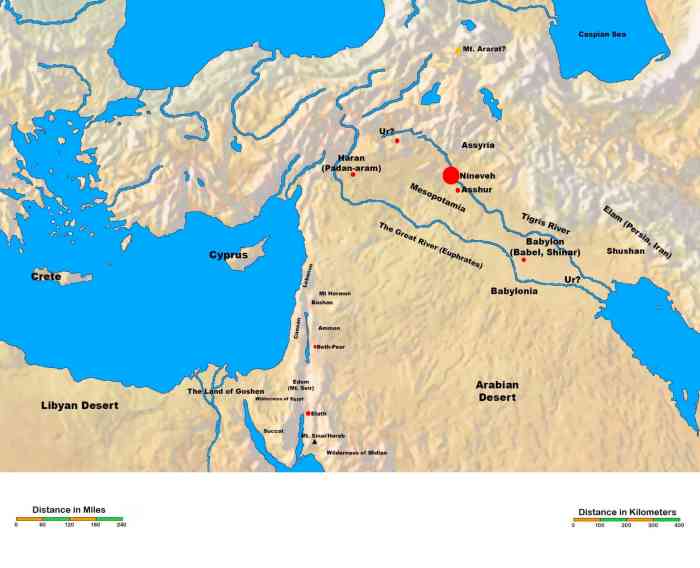The book of obadiah relates the doom of nineveh. – The Book of Obadiah, a concise yet powerful prophetic text, unveils the impending doom of Nineveh, an ancient metropolis. This captivating narrative offers profound insights into the nature of divine judgment and its consequences, leaving an indelible mark on biblical literature and beyond.
Within its brief chapters, the book delves into the historical context of Nineveh, its significance in the ancient world, and the reasons for its prophesied destruction. The vivid prophecies of doom paint a stark picture of God’s wrath, employing symbolism and imagery to convey the severity of the punishment that awaits the city.
The Book of Obadiah and the Doom of Nineveh

The Book of Obadiah is a short prophetic book in the Old Testament that contains a message of doom against the nation of Edom. Edom was a neighboring nation to Israel, and the two nations had a long history of conflict.
The book is attributed to the prophet Obadiah, who is mentioned only once in the Bible (Obadiah 1:1).
Historical Background of Nineveh
Nineveh was the capital of the Assyrian Empire, one of the most powerful empires in the ancient world. The city was located on the Tigris River in what is now northern Iraq. Nineveh was a major center of trade and culture, and it was known for its magnificent palaces and temples.
Reasons for Nineveh’s Doom
According to the Book of Obadiah, Nineveh faced God’s judgment because of its pride, arrogance, and cruelty. The Assyrians had conquered many nations, and they had treated their captives with great cruelty. They had also plundered and destroyed many cities.
Nature of the Doom Prophesied
The prophecies of doom against Nineveh in the Book of Obadiah are very graphic and terrifying. God declares that Nineveh will be completely destroyed, and that its inhabitants will be killed or taken into captivity. The city will be burned to the ground, and its ruins will be left desolate.
The prophecies also use a lot of symbolism and imagery to convey the severity of the punishment. For example, God says that Nineveh will be like a “heap of ruins” (Obadiah 1:16) and that it will be “swept away” like dust (Obadiah 1:19).
Impact of the Doom on Nineveh
The doom of Nineveh had a profound impact on the surrounding nations. The Assyrian Empire was weakened, and it eventually collapsed. The destruction of Nineveh also served as a warning to other nations that God would not tolerate their wickedness.
Theologically, the doom of Nineveh shows that God is just and that he will punish those who do evil. However, it also shows that God is merciful, because he gave the people of Nineveh a chance to repent before he destroyed their city.
Significance of the Book of Obadiah for Today, The book of obadiah relates the doom of nineveh.
The Book of Obadiah is still relevant for contemporary readers because it teaches us about God’s justice and mercy. It also reminds us that God is in control of history, and that he will ultimately triumph over evil.
The book can also help us to understand the importance of repentance. God gave the people of Nineveh a chance to repent before he destroyed their city, and we should all take advantage of the opportunity to repent of our sins before it is too late.
Popular Questions: The Book Of Obadiah Relates The Doom Of Nineveh.
What is the main theme of the Book of Obadiah?
The central theme of the Book of Obadiah is the impending doom of Nineveh, a powerful and oppressive city, as a consequence of its arrogance and violence.
How does the book describe the destruction of Nineveh?
The book employs vivid imagery to depict the destruction of Nineveh, including earthquakes, fire, and invasion by foreign armies, resulting in the city’s complete annihilation.
What lessons can be learned from the Book of Obadiah?
The book teaches the importance of humility, the consequences of oppression, and the certainty of God’s judgment. It also emphasizes the need for repentance and the hope of restoration.

